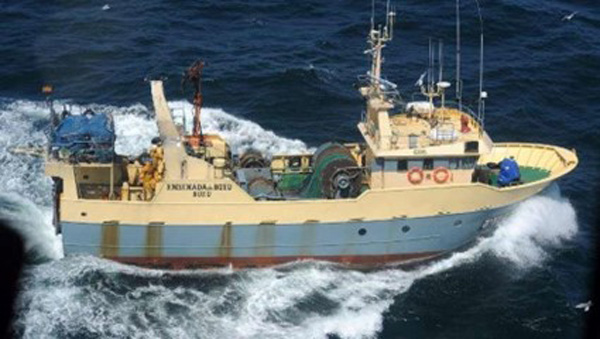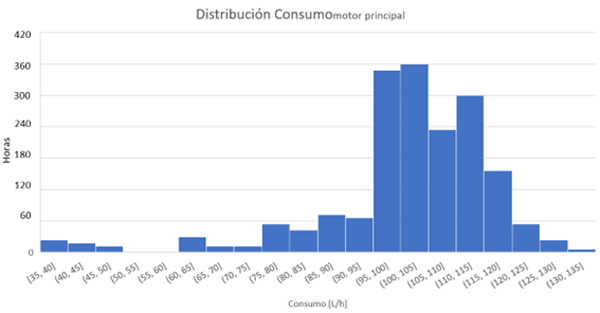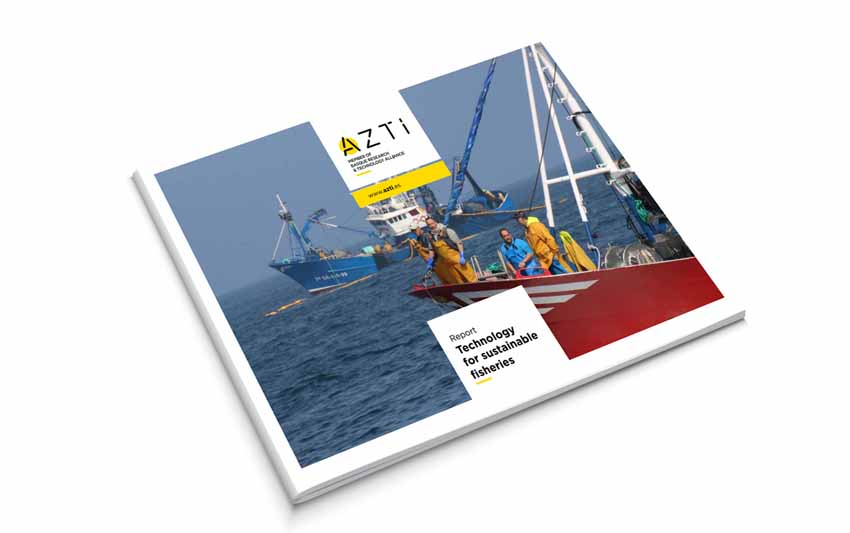Towards decarbonization and energy efficiency of fishing vessels: The importance of the analysis of operational and consumption patterns
Últimas noticias
AZTI Researcher Ángel Borja Receives Prestigious Odum Award for International Scientific Career
Una mirada LGTBIQ+ al reino animal
Circular Economy in Action: Valorisation of By-products through Projects like PRIMA NEWFEED
JOSEBA CASTRESANA, OIHANE C. BASURKO, GORKA GABIÑA. AZTI experts in fishing technologies. JAVIER VALERO. OPROMAR. Organization of Fish Producers of the Port and Estuary of Marin.
The price of marine diesel has soared in the last year, doubling and even tripling in several autonomous communities such as Galicia, the Basque Country and Andalusia with respect to the prices at the beginning of 2021. In this context and with a view to applying climate change mitigation measures, the European Union has adopted as part of the Green Pact the objective of eliminating greenhouse gases by 2050, thus achieving a Europe with a net carbon balance. Measures to reduce the use of fossil fuels will therefore be a requirement to be implemented in the coming decades.
Measures to improve energy efficiency may be the answer to a problem that currently has negative consequences in terms of economy and pollution. So far, numerous fishing vessels have been monitored through sea trials conducted in semi-controlled situations. However, the operating conditions of a vessel and its propulsion system can vary depending on the sea state, so it is essential to analyze the historical data of the vessel over several months of operation to characterize its operating pattern and propose real measures to help design strategies to reduce its consumption and carbon footprint.
In view of this situation, within the framework of the ENERCOM project (financed by the European Union – NextGenerationEU, through the Ministry of Agriculture, Fisheries and Food of the Spanish Government), 3 fishing vessels of the OPROMAR fleet have been monitored, which use the following fishing methods: trawling, longline and purse seine. AZTI, in collaboration with OPROMAR, has carried out an analysis of the operation and consumption patterns of these vessels, based on historical data. Figure 1 shows a representative vessel of the vessels analyzed.

The parameters recorded on board the three vessels can be separated into 3 major groups: engine parameters, power generation and vessel positioning.
Regarding the engine parameters, in the case of the fixed pitch propeller propulsion system, two of the most important variables to be taken into account are the main engine rotational speed and the instantaneous consumption for those rotational speeds. Specifically, the relationship between rotational speed and instantaneous consumption of a marine diesel engine is estimated to approximate a cubic function2. The determination of this function is very important in order to understand at what speeds the engine’s fuel consumption can skyrocket. At relatively high rotational speeds, the relationship between rotational speed and fuel consumption being cubic, to achieve an increase of 100 rpm, and thus slightly increase the speed of the ship, the increase in consumption can be very high, so that a slight increase in ship speed may not be compensated by the large increase in instantaneous consumption. On the other hand, important engine operating parameters such as exhaust gas temperatures have also been collected and their evolution in the different engine operations can be analyzed later.
The second group of parameters corresponds to electricity generation. In this case, multiple parameters are recorded for the ship’s generators, which are responsible for providing the electricity necessary for habitability as well as for the machinery required for onboard and fishing operations. In this way, the fuel consumption of the auxiliary groups is analyzed in order to include them in the study of the total consumption of the vessels on each trip.
Finally, the positioning and speed of these fishing vessels is also analyzed, in order to analyze their fishing operations, and to better understand each fishing trip, taking into account possible effects that may cause high fuel consumption.
Measures to reduce fuel consumption
After analysis of historical data from several months of operation of the different vessels, a number of measures have been identified that could help reduce fuel consumption for the different fishing modes. For example, if a vessel spends 50% of its time en route, keeping the vessel speed (and therefore the engine speed in the case of a fixed pitch propeller propulsion system) below a certain value may result in considerable fuel savings and not lead to an excessive delay in arrival time since, as previously mentioned, the fact of increasing the vessel speed at high engine speeds causes the engine consumption to soar. In short, it would be to find an optimal compromise point between an adequate vessel speed, avoiding that the instantaneous consumption increases considerably or skyrockets.
From these analyses, the consumption pattern of the ships is obtained from which the periods in which the ship can reduce its consumption through different actions to improve its energy efficiency can be analyzed. Figure 2 shows the distribution of the instantaneous consumption of the main engine of one of the ships studied. In this way, we have analyzed in detail those situations of high consumption in which the ship uses long periods of time, observing its speeds and rotational regimes in order to analyze possible modifications of routes, operation patterns, etc. that allow improving its energy efficiency.
All this leads to the conclusion that in order to move towards the decarbonization of fishing fleets, it is essential to have a good knowledge of the operation and consumption pattern of each vessel. It is then when it will be possible to design a savings strategy and propose applied measures to reduce fuel consumption. Not all measures are suitable for all fleet segments, hence the relevance of knowing the operating patterns of the vessels; and the amount of fuel and emissions reduced by applying these measures will dictate the cost-effectiveness and suitability of the measures.









